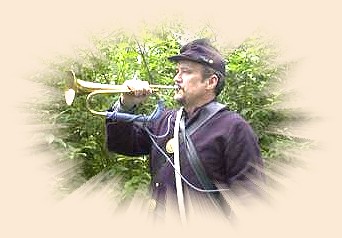|
The 4th of July is of course the celebrated
Anniversary birth of the United States. For
those who grew up before the age of political
correctness, it was a day also to remember
our soldiers.
For me, a kid who spent most of her summers in
Rogers City, Michigan, it meant a parade, band
concert and the whole town walked the few blocks
from the band stand down to the public beach to
watch the fireworks. The largest company in town
was 'Calcite' - a huge limestone quarry which
furnished limestone necessary for the steel-producing
plants. Calcite was the home of a large steamboat
fleet, The Bradley Transportation Line, which carried
the stone to the mills around the Great Lakes. A
big barge was loaded with fireworks and they were
ignited at dark to provide the community with the
annual show. I believe in the late 40's and 50's
Calcite provided the show for the town.
There were several 4th celebrations around the
area, including a Grange Picnic at Ocqueoc Falls.
It's often hot and humid by this time of year in
northern Michigan, and the county park had lots
of picnic tables under the trees. The stream
flows through the park, and there were reasonably
flat stones across the stream allowing the kids to
run back and forth, with an occasional cool dunk
in the stream. The sweet smell of the cedars, the
sound of the river splashing over the gravel bottom,
piles of watermelon and the tables crammed with food
brought by everyone. Including fresh peach pies, and
hand-cranked ice cream made with real cream and fresh
strawberries tossed in at the last minute. The
Ocqueoc was where I first learned to cast a fly
with my grandfather, just below the falls, right
at this park.
I still have a mental picture of men in white
shirts, ties, and sleeves rolled up laughing
and talking. Part of the laughing may have
been from the beer stashed in a little rock-lined
pocket downstream. Some of the older men played
cards, Pedro was the big game, with a few Dominos
games for good measure. Grandfather loved a small
glass of wine and Pedro with his old friends.
Grandmother and granddad lived across the street
from the Rogers City Memorial Cemetery on Larke
Ave. It was a very well kept cemetery, and being
a curious kid I often walked around looking at the
grave markers. I was fascinated by the very old
markers, and even some with photographs of the
deceased enclosed in a curved glass frame on the
gravestones. The grass was always very neatly
cut and trimmed and fresh flowers on the more
recent graves. Many years later, grandmother
and granddad are buried there.
During the second World War years, many internment
services were held there, always with Honor Guard.
It was there I first heard taps played. Small
towns were quiet before the era of boom boxes and
incessant tvs. The sound echoed up Hornbucker Hill
and back down. Regardless of where I hear it now,
I still hear the first one in Rogers City.
In July 1862, after the Seven Days battles at
Harrison's Landing near Richmond, VA., Army
General Daniel Butterfield, wounded commander
of the 3rd Brigade, reworked another bugle call,
"Scott Tattoo," into taps with his bugler Oliver
Wilcox Norton.
He apparently thought the regular call for Lights
Out was too formal. Taps was adopted throughout
the Army of the Potomac and finally confirmed by
orders. After the war, taps became an official
bugle call. Col. James A. Moss, in his Officer's
Manual first published in 1911, gives an account
of the initial use of taps at a military funeral:
"During the Peninsular Campaign in 1862, a soldier
of Tidball's Battery A of the 2nd Artillery was
buried at a time when the battery occupied an
advanced position concealed in the woods. It
was unsafe to fire the customary three volleys
over the grave, on account of the proximity of
the enemy, and it occurred to Capt. Tidball that
the sounding of taps would be the most appropriate
ceremony that could be substituted."

A congressional mandate in 1999 required that
active-duty serviceman present the flag and
taps as funeral honors. The mandate stirred
a national debate, as there weren't enough
active-duty buglers to go around. The military
branches resorted to using ceremonial bugles that
have taps recordings hidden in them. But even
those are high enough in demand that just CDs
are sometimes used.
At many memorial services for our military,
the words of taps close the service.
Day is done, gone the sun,
From the hills, from the lake,
From the sky.
All is well, safely rest,
God is nigh.
Fades the light; and afar
Goeth day, And the stars
Shineth bright,
Fare thee well; Day has gone,
Night is on.
Thanks and praise, For our days,
'Neath the sun, 'Neath the stars,
'Neath the sky,
As we go, This we know,
God is nigh.
Happy Birthday America, and God Bless
our Military. ~ DLB
Credits: We thank
TapsBugler.com for the photo of Frosty Lawson, Haskell, NJ.
used here and on our front page. Frosty is also a Civil War re-enactor.

If you would like to comment on this or any other article please feel free to
post your views on the FAOL Bulletin Board!
|


